It’s easy to think of scientific researchers as existing in a vacuum: spending long days and evenings in a laboratory, making observations that most people will probably never understand or hear about. But when it comes to blood cancer research, that couldn’t be less true.
Every study is a chance to make a breakthrough—one that could change, and save, the lives of patients and their families. That’s why The Leukemia & Lymphoma Society (LLS) funds innovative research. We know we need as many minds as possible to close the gap to a new treatment—or a cure.
And we’re far from alone in that goal. Gilead and Kite Oncology, one of LLS’s trusted and valued partners, makes groundbreaking cancer research their highest priority. And as part of our Light The Night events this year, LLS and Gilead and Kite Oncology are championing scientific breakthroughs like CAR-T cell therapy with “Innovation Celebrations."
“As the exclusive sponsor of the Innovation Celebrations, Gilead and Kite Oncology is honored to recognize patients who are living longer as a result of CAR T-cell therapy, and members of their support community. These celebrations serve as an opportunity for the CAR-T community to celebrate survivorship and align perfectly with our national presenting sponsorship of Celebration & Community for Light the Night,” said Chad Saward, Senior Director, Patient and Professional Relations, Kite, a Gilead Company.
These honorees’ lives have been changed, and saved, by research. More specifically, by a blood cancer treatment that’s come to the forefront of blood cancer research in the last three decades: CAR T-cell therapy.
What is CAR T-cell Therapy?
Chimeric antigen receptor (or CAR) T-cell therapy uses a patient’s own immune system to treat their cancer—a type of treatment called immunotherapy. In CAR-T therapy, a patient’s T cells (which help the body fight infection) are removed from their body, then reengineered in a manufacturing facility to recognize and kill cancer cells. Then, these new-and-improved CAR-T cells are reintroduced into the patient’s body to hopefully kill any cancer cells they find.
CAR-T therapy has progressed in leaps and bounds since its earliest development in the 2000s, and LLS has been right at the forefront, supporting scientists researching its potential. In fact, we started funding work to grow T cells in vitro in the 1990s. In 2017, the FDA approved the first CAR-T treatment for cancer, and since then, six CAR-T treatments have been approved in total.
“LLS is incredibly proud to say we supported the development of CAR T-cell therapy at many important inflection points—from basic laboratory work all the way to the clinic,” says Lee Greenberger, PhD, LLS Chief Scientific Officer. “Today, thanks to the work of so many amazing scientists, including those at Kite, CAR T-cell therapy is saving and extending the lives of adults and children with blood cancer.”
That’s a massive breakthrough for patients who need options beyond the standard chemotherapy or radiation. And so far, more than 30,000 blood cancer patients in the U.S. have felt the impact of CAR-T in their lives.
Some of those survivors will take a place of honor at their respective Light The Night events as part of an Innovation Celebration. They’ll carry white lanterns to signify their survivorship, and they’ll be accompanied by a designated Red Lantern Holder—someone close to them, whose lantern color shows their support.
Meet these special honorees below!
Still Here, Thanks to Scientific Innovation
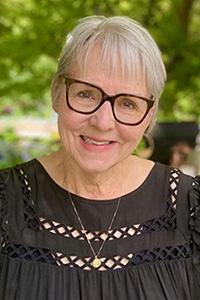
Shannon Findlay had a family history of bladder cancer, but never expected to be diagnosed with diffuse large B-cell lymphoma in 2021. Her doctors turned to CAR T-cell therapy as a treatment option after multiple lines of chemotherapy didn’t work for her. It took a year of CAR-T infusions—during which she developed fevers and low blood pressure—but Shannon finally emerged with a clear PET scan and a long-awaited remission stamp! Now three years post-treatment, Shannon enjoys quality time with her family, gardening, reading, and traveling to new places—all things she traces back to her CAR-T treatment.
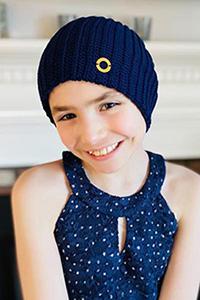
When her acute lymphoblastic leukemia (ALL) didn’t respond to chemo, Ava Girolimetti faced what every cancer patient dreads: relapse. Her next option? CAR-T—which she was the first patient ever to receive at Boston’s Dana-Farber Cancer Institute. And it worked: in 2020, six months after her infusion, she was declared cancer-free! Ava’s enjoying life and new experiences, and just made her local volleyball team.
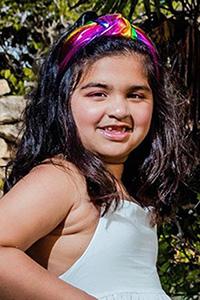
Kenza Durani was experiencing unusual eye swelling at just 9 months old. After being diagnosed with acute myeloid leukemia (AML), she underwent three rounds of chemotherapy and her parents were told she needed a bone marrow transplant. Unfortunately, because of her unique genetics, finding a perfect donor match was highly unlikely. In the midst of this uncertainty, her family found a glimmer of hope: a clinical trial for CAR-T cell therapy. Thanks to Kenza’s father donating his T-cells, the treatment was successful! Today, Kenza is able to do the things she enjoys like playing with friends, drawing, and running around.
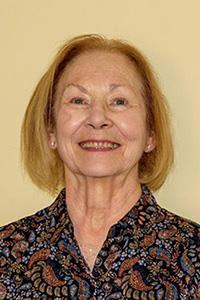
It’s been a long road for Julie Novak. After a Hodgkin lymphoma diagnosis in 2012, she did three years of chemo and reached remission. She had a few years of relief—until her lymphoma came back in 2019. A bone marrow transplant was Julie’s next option, but that failed nine months later. When she started CAR-T in 2020, she didn’t know what to expect—but she’s been in remission ever since!
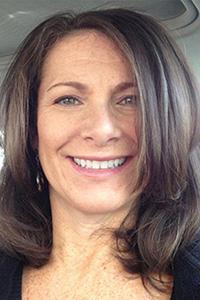
Susan Simpson tried treatment after treatment after her diagnosis of multiple myeloma. After a decade, just when she wondered when her options would run out, her oncologist told her she was a candidate for CAR-T. Susan took a chance—and it paid off. She’s now been in remission for almost two years!
Looking Ahead—and Around Us Right Now
Every breakthrough in blood cancer research is a chance to celebrate. It means hope for more patients and their loved ones; more time for them to live their lives.
So we’ll keep funding scientists all over the world, alongside our partners like Gilead and Kite Oncology. We’ll keep supporting patients, survivors, and their loved ones at any point after diagnosis. And we’ll keep speaking up for them with our country’s lawmakers.
And the great news? You can be part of it all.
- To help LLS continue to work as hard as we do for blood cancer patients and their families, donate to us today.
- If you’re looking for community and a way to lift up other people affected by blood cancer, find it at a Light The Night event near you this season.
- Curious about the innovation LLS continues to support? Take a look at our yearbook of current researchers.
- Take action to change cancer healthcare policies for the better as a volunteer for our Office of Public Policy.